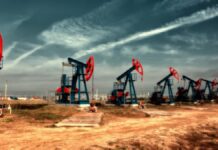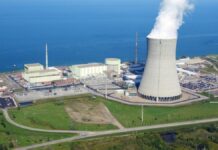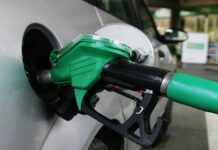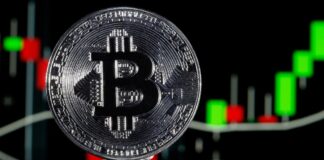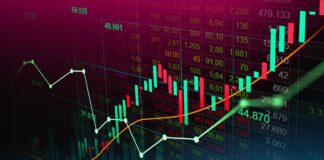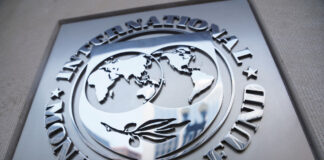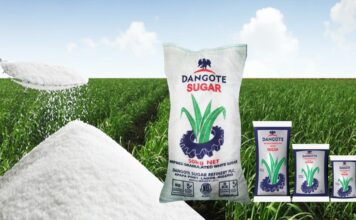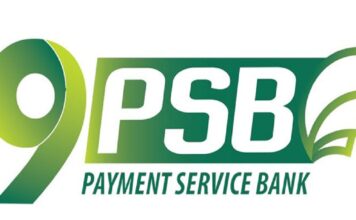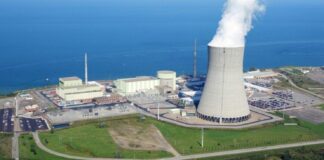Nigerian Economy Tumbles 1.9%, Analysts Differ on Outlook
In 2020, the Nigerian economy tumbles 1.9% when compare with the nation’s balance sheet size in the corresponding year 2019.
Amidst quick rebound from economic recession following a 0.11% gross domestic product growth rate in the fourth quarter, the economy still lie in the shallow.
The National Bureau of Statistics in a report announced the Nigerian economy growth of 0.1% year on year in Q4:2020.
A leading investment firm, Afrinvest, said this report surprisingly shrugging-off a technical recession brought about by the pandemic.
The fragile recovery was mainly driven by the non-oil sector which rose 1.7% year on year from -2.5% in the previous quarter.
The feat was supported by the agriculture and services sectors.
However, it was noted that performance in the oil sector worsened with growth contracting further to -19.8% year on year (from -13.9% in Q3) as oil production fell by 11,000bpd to average 1.56mb/d.
This resulted from the nation’s compliance with the Organisation of Petroleum Exporting Countries and allies (OPEC+) production cut arrangement.
The Oil cartel had reduced member countries daily supply cut, and unlike in the past, members were forced to adhere to the agreement, thus push oil price curve upward.
As a result, Oil sector contribution to growth plunged to its weakest in 12-quarters at 5.9% year on year (Q4:2020) from an average of 8.6%.
Nigeria Partners World Bank on 2020-2030 Strategic Plan
Notwithstanding, Afrinvest noted the negligible recovery in fourth quarter Q4, 2020 economic performance was down -1.9%, worse than the 2016 recession of -1.6% but stronger than our revised forecast of -2.9%.
“With the combined effect of an economic lockdown and oil production cuts, there was no escaping a deep contraction in output”.
Specifically note is the fact that the oil sector contribution to growth reduced in 2020, contracting 8.9% from 4.6% in 2019, following strict compliance with the OPEC+ production cuts.
Historically, Nigerian economic growth always come weak anytime there is pressure from oil sector due to overconcentration of revenue in the segment.
In this regard, oil production fell 11.7% to an average of 1.8mb/d in 2020 from 2.0mb/d in 2019.
Subsequent TO the disruptions to economic activities, the non-oil sector contracted by 1.3% in 2020 worse than the 2.1% achieved in 2019.
Few Bright Spots
Spotting the few bright spot, Afrinvest explained that there was a broad-based underperformance in the major sub-sectors of the economy.
According to NBS report, of the 19 sectors, only 6 sectors were resilient in 2020 amidst rising virus-infections.
In the services sector, it noted growth recovered in Q4:2020 printing at 1.3% from -5.5% in the previous quarter while growth fell by -2.2% in 2020 erasing the positive performance in 2019.
By NBS report, the ICT sector sustained double-digit growth at 12.9% from 11.1% in 2019, supported by the massive jump in demand for data and voice services.
Data from the Nigerian Communications Commission (NCC) showed that each month between May and December 2020, year-on-year growth rate of telecoms subscribers were at double digits- averaging 13%.
Meristem Securities Limited this performance reflects the growth momentum in the telecoms industry, as widespread adoption of videoconferencing and work from home culture has triggered increased demand for telecommunication services.
“We observed that between Q2:2020 and Q3:2020, year-on-year growth in the information and communication sector averaged 16.33%.
Hence, even a growth of 14.70% in Q4:2020 reflected a weakening growth momentum, albeit higher than 10.16% recorded in Q4:2019”, the firm added.
The report showed that the trade and real estate sectors were the worst hit within the sub-sector, both reducing contribution to 20.6% of GDP from 22.1% in 2019), though Afrinvest hinted the real estate has been in recession since 2016.
Similarly, the trade and real estate sectors contracted -8.49% and -9.2% year on year in 2020 respectively from 0.4% and 2.4% in 2019.
“In our view, unfriendly trade policies of the government coupled with the restrictions to trade activities dragged performance”, Afrinvest said.
In the real estate sector, it noted that while the health crisis has worsened the weak macroeconomic environment, poor investment in housing, the lack of flexible regulations as well as expensive and slow approvals of building permits are critical factors.
On the other hand, the financial services sector surged 13.3% in 2020 faster than 2.4% in 2019, although quarterly growth decelerated to -2.5% in Q4:2020 from 28.4% in Q2 and 22.3% year on year in Q4:2019.
“We suspect that while the performance in the first half of 2020 was driven by loan growth on the back of 65% minimum Loan-to-deposit ratio policy, the slowdown in business activities in Q2 and Q3 dampened growth for the rest of 2020”, Afrinvest stated.
Given the relaxation of the lockdown measure, the agriculture sector grew faster by 3.4% year on year in Q4:2020 compared with 1.4% in the previous quarter.
Afrinvest said the growth was slightly weak at 2.2% year on year in 2020 from 2.4% in 2019, noting the pandemic has further delayed the sector from reaching its long-term potential of 3-4.0% growth.
As noted, crop production expanded at a slower pace of 2.2% year on year in 2020 relative to 2.5% in 2019 while growth improved for livestock production to 1.9% from 0.2% in 2019.
“While the resumption in economic activities would support growth in 2021, the slow progress towards curbing insecurity, boosting agriculture yields, and helping farmers adapt to a changing climate would continue to hurt the sector”.
Unsurprisingly, the manufacturing sector growth declined to -2.8% from 0.8 year on year in 2019 dragged by the weakness across its major sub-sectors.
Of the 13 sub-sectors, cement expanded 3.9% year on year in 2020 from 3.1% in 2019, food, beverage & tobacco rose 1.5% as against 2.2% in 2019, Chemical & pharmaceutical products did 2.5% from 0.4% in 2019.
Also, motor vehicles & assembly jumped 4.0% from 2.3% in 2019 as the only bright spots.
The weak momentum in the sector is mainly due to sustained weakness in consumer spending and the negative impact of pandemic on activities.
“In our view, the broad-based contraction suggests that the economic recovery would continue at a sluggish pace without the implementation of reforms, market-friendly policies and a full reopening of all the sectors of the economy”, Afrinvest said.
Outlook: Real GDP Growth to Recover
Following tepid performance in the fourth quarter, and overall drop in GDP performance for 2020, Afrinvest projected that real GDP growth will recover to 2.5%.
“In 2021, we project a recovery of 2.5% in real GDP to be driven by increased economic activities in the non-oil sector as activities pick-up on the back of the land borders reopening and general recovery in sentiments.
“Further, we anticipate a moderate expansion in the oil sector as global oil demand is projected to remain weak while prices recover faster.
“The major downside risks to our forecast include weaker-than-expected oil price and production, worsening insecurity and unfavourable weather patterns in the agriculture sector.
“We have ruled out the possibilities of lockdown despite increasing case count from COVID-19”, Afrinvest said.
In the same direction, analysts at Meristem maintain expectation of 2.33% growth rate, anchored on the recovery narrative in the international oil market and improved levels of economic activities, following coordinated fiscal and monetary support.
South Africa based Capital Economics said looking ahead, it believes some of the economy’s headwinds will probably ease.
Though the firm noted that a second wave of the coronavirus appears to be subsiding and Nigeria is set to receive its first batch of vaccines at the end of February.
“OPEC+ quotas are scheduled to increase in Q2, which will support the struggling oil sector.
“That said, the recovery is likely to remain subdued. Widespread vaccine roll-out is unlikely in the near term, which will keep a lid on non-oil activity.
Read also: Foreign Investment Drops as Investors Sideline Nigerian Economy
“And even with higher OPEC+ quotas, oil output will remain very low compared to pre-pandemic levels.
“We have penciled in GDP growth of 3.5% this year”, Capital Economics said in a macroeconomic report.
Nigerian Economy Tumbles 1.9%, Analysts Differ on Outlook

